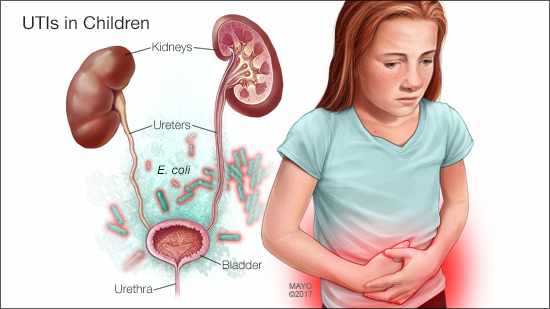
Every year on March 11th, World Kidney Day is observed around the world to raise awareness around the significance of Kidney health and impact of kidney diseases. This year, the theme for the World Kidney Day is ‘Living Well with Kidney Diseases’ that aims to increase education and awareness about the effective symptoms of kidney diseases and focuses on empowering patients by educating them about the various measures which they can adopt for the management of the disease.
According to a recent report, the burden of Kidney diseases has significantly increased in India over the period of last 10-15 years. Our country is currently the home to 60 million diabetics and an even larger number of pre-diabetic’s patients who are also vulnerable to kidney disease and more than 2, 00,000 patients every year are dying due to kidney failure in India. A significant portion of our population is also suffering from hypertension which is the most common cause of Chronic Kidney Diseases (CKD).
A stressful work life coupled with a sedentary lifestyle are some of the key contributing factors that have led to a rising in number of kidney related ailments in the recent years. Even though kidneys may be small in size, they are extremely crucial for ensuring the health and wellness of a person as they perform the life-sustaining job of filtration of waste and excess fluids from the blood. However, kidneys continue to remain one of the most ignored organs of the body and sadly, fewer number of people comes forward for regular screening of kidneys and health checkups.
Like any other chronic illness, management of kidney diseases too requires concrete measures and along with equitable access to care, early diagnosis, prevention and adopting a healthy lifestyle. Patient education and public participation too become extremely crucial for combating the rising incidences of kidney diseases.
Many people are not aware about the fact that even before undergoing any symptoms, a person can lose upto 90 percent of their kidney functions. Due to limited knowledge about the disease, people are mostly unaware whether they are suffering from an underlying kidney disease which further leads to their late presentation and increases the morbidity.
People usually lack knowledge about several important aspects related to kidney diseases such as –
Who is at risk?
There are variety of kidney diseases such as Acute kidney injury, Chronic kidney disease, Renal stones, Nephrotic syndrome, Urinary tract infection, Inherited / congenital disease. People addicted to smoking regularly, suffering from diabetes, high blood pressure, obesity and who have a family history of kidney diseases are at an increased risk of kidney disease.
Often in the initial stages, the signs and symptoms are not visible as Kidneys are highly adaptable and able to compensate for lost function. In the later stages, when the damage to the kidney becomes irreversible, patients also experience several symptoms such as –
1. Swollen ankles and feet
2. Weight Loss
3. Blood in Urine
4. Increased pain in chest
5. Itching in skin
6. Cramps
7. Difficulty in peeing
8. Changed Urine frequency
If anyone is experiencing any such persistent or worrying symptoms that are indicative of a kidney disease, then they should immediately seek medical advice and proper diagnosis.
What are the tests available for detecting kidney diseases?
Early detection of reduced kidney function becomes extremely crucial as it allows the doctors to provide the suitable treatment before the total damage of the kidney and prevent any complications.There are a few warning signs of a kidney disorder, however, most of the time these are ignored or confused with alternative pathologies (because of their non-specific nature). Therefore, one must be very watchful and should get the confirmatory tests (including blood, urine, and imaging) done at the earliest appearance of any sign of a kidney disorder. One should visit a Nephrologist and clarify his/her doubt.
Is there a cure for kidney diseases?
With the adoption of a healthy lifestyle the progression of kidney diseases can be halted or slowed.
Several preventative measures can prove beneficial in curing the disease at an early stage. This includes –
1. Regular exercise
2. Reducing the salt intake and maintaining blood pressure
3. Regular monitoring of blood sugar levels
4. Avoid smoking
5. Consuming adequate water
6. Monitoring the protein intake
7. Restricting the use of over the counter medication
All the above measures can not only help keeping the kidney diseases at bay but can also improve the quality of life patients suffering from kidney disease.
How can patients suffering from the chronic kidney diseases cope up with the condition?
Recognition and awareness of warning signs and timely intervention can make the difference between the early detection and treatment of kidney disorder or kidney failure which could end up with dialysis, kidney transplant or even death. Kidney disease often takes a toll on patients and many of them perceive that the condition is going out of their control. This further impacts the patient management and increases the worry of the patient’s family members. During such bleak moments, patients must understand that having the willpower to overcome the challenging times and developing emotional strength can increase their chances of survival. Additionally, by taking initiatives to understand the diseases and by being in regular touch with their healthcare provider, patients will be better positioned to chart out their path to recovery. In addition, with increased mental strength and support, they can be empowered enough to self-manage their symptoms.
Written by Dr. Aditi Gupta, Lead Consultant –Biochemistry, Aster Labs.
";

